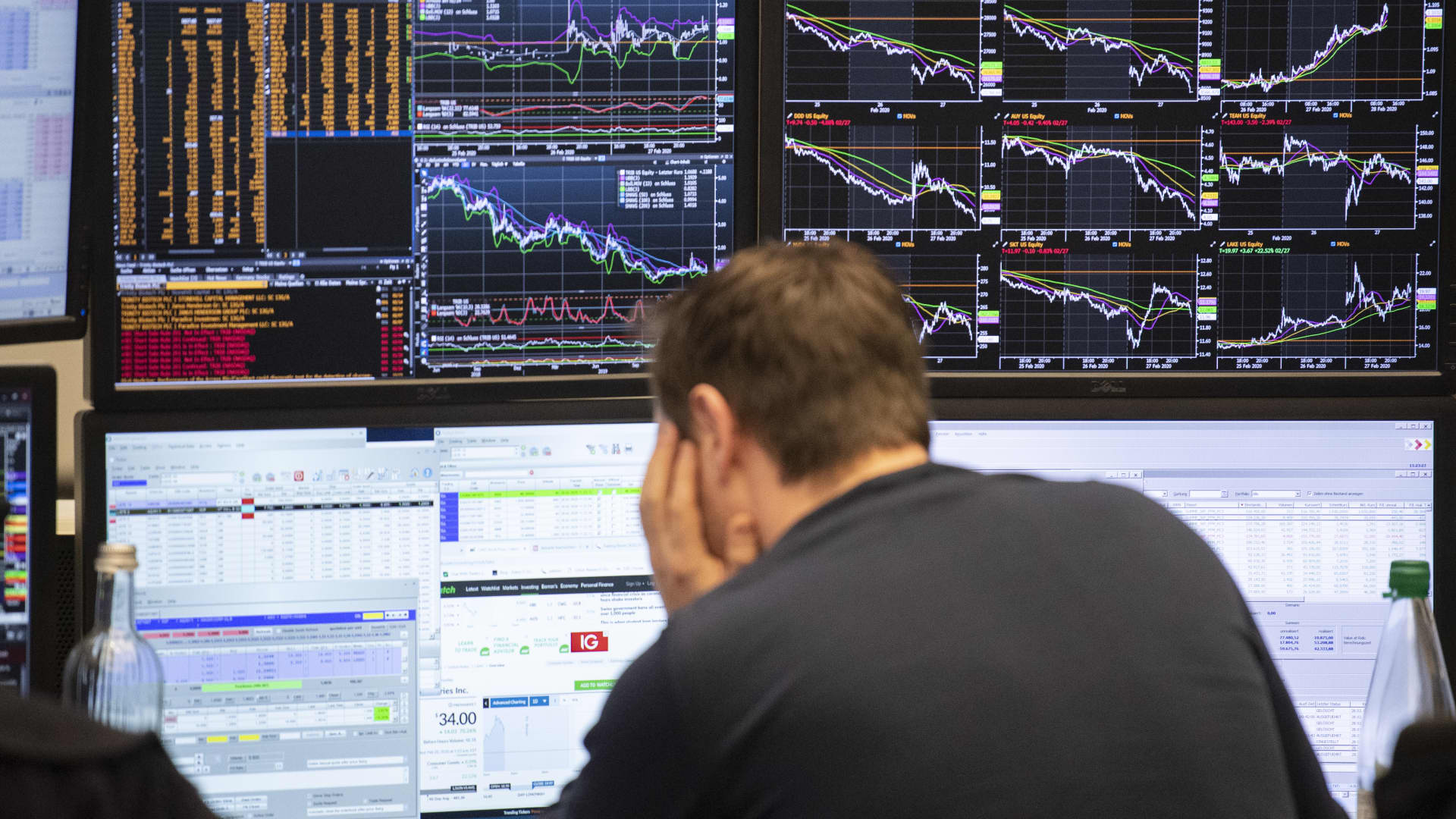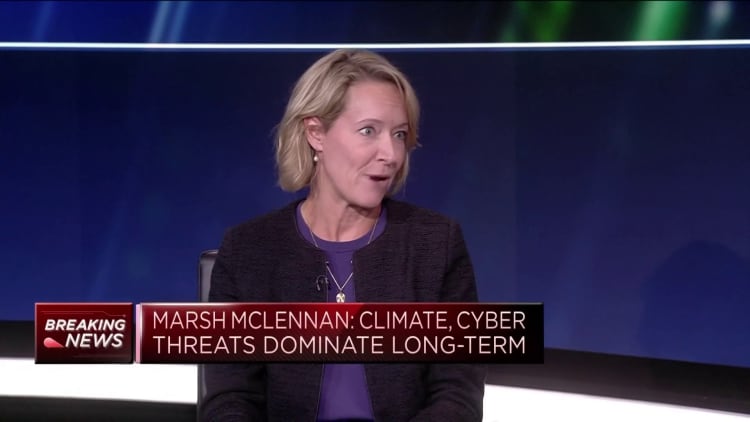Top economists predict global growth will weaken this year as geopolitical rifts grow


Boris Roessler | Picture Alliance | Getty Images
The majority of economists surveyed by the World Economic Forum expect the global economy to weaken this year, saying that geopolitical fragmentation around the world will deepen.
“Global economic prospects remain subdued and fraught with uncertainty,” WEF’s report, published Monday, said.
“While there are positive developments, such as easing inflationary pressures and advances in the field of artificial intelligence (AI), businesses and policy-makers face persistent headwinds and continued volatility as global economic activity remains slow, financial conditions remain tight and geopolitical rifts and social strains continue to grow.”
The survey of 30 chief economists between November and December last year found that 56% of those questioned expect the global economy to weaken in 2024, while 20% expect it to remain unchanged and 23% forecast “somewhat stronger” economic conditions.
The International Monetary Fund, meanwhile, expects global economic growth to fall slightly in 2024 to 2.9%, from 3% last year.
WEF’s survey shows significant divergence among economists’ expectations for different economies, with the experts most bearish on Europe’s prospects. Some 77% of those surveyed expect growth in the region to weaken this year — that’s almost double the figure recorded in September’s survey.
The economists also turned more negative on the U.S.’s outlook. In the previous survey, 78% forecast moderate or higher growth this year, whereas the latest research sees that number fall to 56%.
Respondents were broadly positive and unchanged on their outlooks for South Asia, and East Asia and the Pacific, but struck a more cautious tone on China, with the majority (69%) now expecting only moderate economic growth.
Of particular concern to the economists was geopolitical rifts, with 69% of economists saying they expect the pace of geopolitical fragmentation to accelerate in 2024.
“When asked about the implications of recent developments … chief economists continue assigning a prominent role to geopolitical factors across macroeconomic and financial developments,” the report said.
“About 87% expect recent geopolitical developments to stoke global economic volatility in the next three years, and eight out of ten expect it to heighten volatility in stock markets.”
It comes after a year of heightened geopolitical tensions, with Russia’s war in Ukraine continuing, China-U.S. relations remaining fraught, and fears of a broader conflict in the Middle East due to the war between Israel and Hamas.
2024 is also a year that will see an unprecedented number of people vote in elections, with over 75 countries — including major economies like the U.S. and U.K. — heading to the polls.
A more positive outcome of WEF’s survey of economists was inflation expectations, with a loosening of financial conditions expected by 70% of respondents.
Economists’ expectations of high inflation fell across all regions, with particular improvement seen in Europe and the U.S., although the report notes that two-thirds of those surveyed still expect moderate inflation in both regions.









